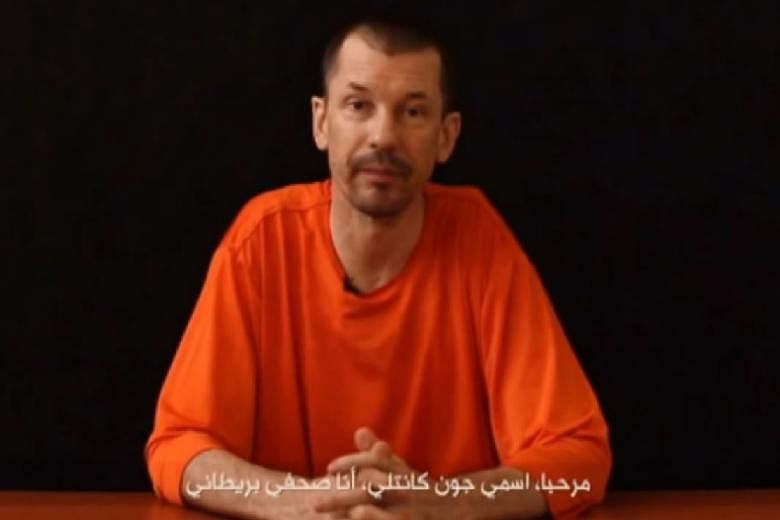LONDON (NYTIMES) - John Cantlie, a British journalist who was abducted in Syria by the Islamic State in Iraq and Syria (ISIS), is believed to be still alive after more than six years in captivity, a British government official said on Tuesday (Feb 5).
Cantlie has been seen in several propaganda videos made by the ISIS, also known as ISIL, but the last one was released more than two years ago.
An official of the Syrian Democratic Forces - a US-allied, Kurdish-led group fighting ISIS - said in January that Cantlie might still be held by militants in the remaining pocket of ISIS control in eastern Syria.
On Tuesday, Ben Wallace, Britain's minister for security, told journalists at a Home Office briefing that Cantlie was thought to be alive, though he did not disclose how the government might have knowledge of his condition.
Cantlie, a photographer whose work had been used by multiple British news organisations, and American journalist James Foley, who filed for GlobalPost and Agence France-Presse, were abducted in Binesh, Syria, in November 2012.
In 2014, the ISIS released a gruesome video showing the murder of Foley, who was beheaded with a knife.
Cantlie, who has experience working in war zones, was abducted in 2012 by fighters affiliated with ISIS.
He appeared in an orange jumpsuit in several online videos for ISIS, often delivering the propaganda, possibly under coercion, as a microphone-holding journalist reporting from inside the group' caliphate.
Cantlie's continued captivity is the latest evidence that a core of ISIS fighters remains intact.
In announcing a decision to withdraw US forces from Syria, President Donald Trump recently suggested that the group had been defeated, though he and other officials later qualified that assertion and delayed the pullout.
At the briefing on Tuesday, Wallace, the security minister, said fighters for the group were continuing to seek safe havens in Libya, Somalia, and sub-Saharan Africa.
The group was "massively downgraded," he said, but "had not gone away."
Britain and the United States, unlike some European allies, refuse to pay ransoms to hostage takers as a matter of policy, partly to avoid funding militant activity.

